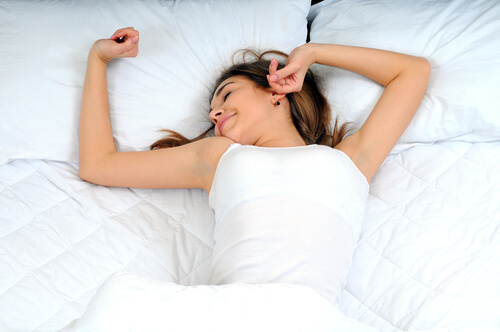 Those who suffer from high blood pressure have been advised that exercise can help to alleviate the problem. What many patients don’t know is that a solid night’s sleep can actually make a significant impact on blood pressure. Those who suffer from sleep apnea have frequently interrupted sleep and are at a heightened risk for high blood pressure.
Those who suffer from high blood pressure have been advised that exercise can help to alleviate the problem. What many patients don’t know is that a solid night’s sleep can actually make a significant impact on blood pressure. Those who suffer from sleep apnea have frequently interrupted sleep and are at a heightened risk for high blood pressure.
Sleep and the Human Body
As doctors and medical researchers learn more about sleep disorders like sleep apnea, they’ve discovered that they can cause a myriad of health problems including elevated blood pressure. If you don’t get a good night’s rest, your physical health will inevitably suffer. Aside from high blood pressure, poor sleep can also lead to stroke, diabetes, high cholesterol and even a heart attack.
Medical experts no longer think of sleep as a passive state. There’s plenty going on in our bodies while we are resting. The body needs this time to restore itself and prepare for the rigors of the next day. As an example, the body’s autonomic nervous system requires deep sleep for blood pressure to fall and the heart rate to decrease. If you don’t get high quality sleep for elongated periods of time, your body won’t pump blood as designed.
Sleep Apnea and Blood Pressure
In sleep apnea, the muscles in the back of the throat often relax to the point where they block the upper airway. When this is obstructed, adrenaline is released in the body’s bloodstream and the blood pressure elevates to incredibly high levels. If blood oxygen levels drop during apnea, the heart rate can be altered and harmful arrhythmias can occur. This increase in blood pressure continues through sleep and into the daylight hours.
The majority of people have a decrease in blood pressure by about 15 percent while sleeping. Yet this does not occur in others. In some, it actually increases by the same level. In others, it stays stagnant. Both of these groups of people lack the quality rest that the body needs to maintain a healthy blood pressure. As a result, their blood pressure spikes and they are at a higher risk for stroke.
Sleep Apnea Treatment
Those who suffer from sleep apnea can treat it with continuous positive airway pressure (CPAP). A machine sends air pressure into your body through a mask that you put over your nose as you sleep. Many physicians will request that their patients undergo a sleep study to determine if CPAP is the best sleep apnea treatment.
Sometimes, a patient will be best served by losing weight and altering their diet. Others benefit from oral appliances that keep the mouth open while sleeping, adjustable airway pressure devices that adjust air pressure while sleeping or expiratory positive airway pressure (EPAP). EPAP is a relatively new treatment that makes use of a diminutive device that is placed over your nostrils before you sleep. It sends air into your airways and you exhale through tiny holes in the valve.

